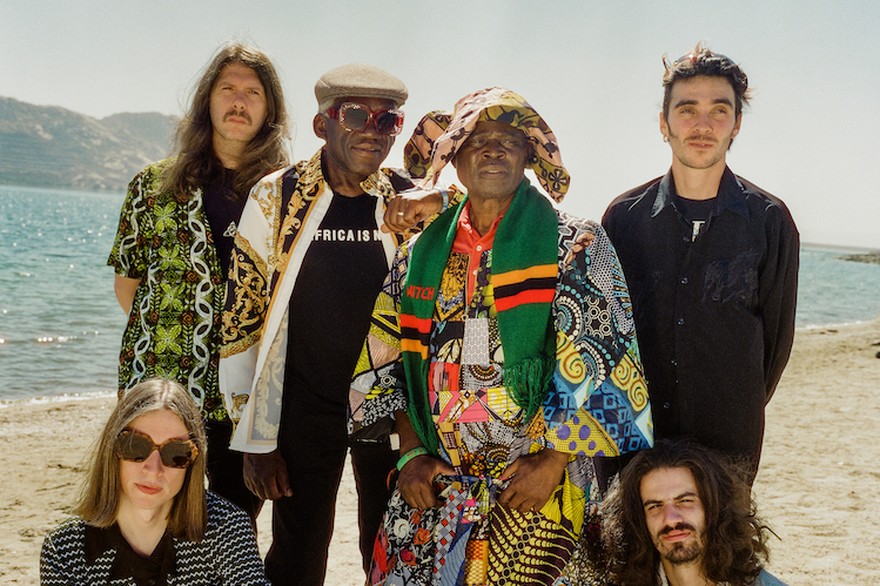

W.I.T.C.H. (2024)
Lusaka, Zambia
1970s psychedelic rock pioneers W.I.T.C.H. were the forerunners of a subgenre of African music known as Zamrock. Taking inspiration from artists like Black Sabbath and Blue Cheer, they forged a sound all their own through personal innovations like funky basslines and screaming organ melodies, with lyrics that often recalled the light-hearted fun of ‘50s surf rock.
Zamrock was a new type of psychedelic rock that married American blues guitar styles with British heavy metal pacing and German prog complexity. According to Zambian music lecturer Lunga Sianagowa, Zambia did not have many recording studios throughout the ‘50s and ‘60s. The difficult process and production of Zamrock, which had to be recorded and produced in Kenya, helped to create its distinctive lo-fi sound.
W.I.T.C.H. led a musical revolution with Zamrock that was as fierce as it was short-lived. A mixture of political censorship and the AIDS epidemic, which took the lives of some of W.I.T.C.H.’s original members, forced Zamrock into the underground. Most of the movement's biggest bands had disbanded by the 1990s.
A newfound appreciation of psychedelic rock and lo-fi recording in the late 2010s brought W.I.T.C.H. to a global audience that had yet to see its importance during its heyday.
W.I.T.C.H. has reformed, with original member Emanyeo “Jagari” Chanda joined by a new lineup to revive the spirit of Zamrock. As they say in the closing track of their 2023 album Zango, the band has been reborn “like the story of the Phoenix, the bird from the ashes.”